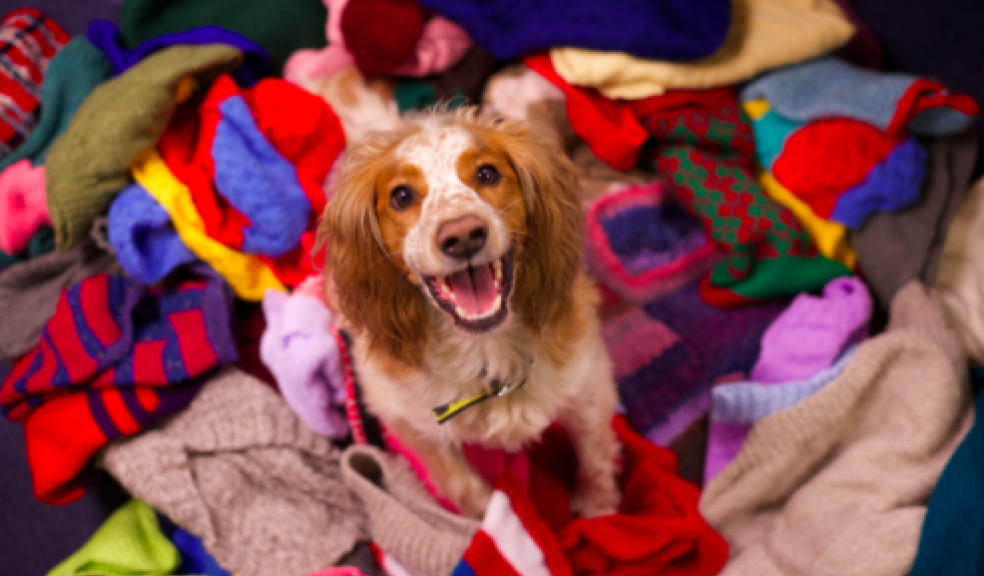
Dogs Trust helps pet owners in housing crisis
Dogs Trust, the UK’s largest dog welfare charity, will be delivering hampers to homeless dogs this Christmas after 170 homelessness organisations requested parcels for 1200 dogs. With the number of people rough sleeping in England doubling since 2010, this service is as vital as ever [1]
The charity will be delivering gifts to homelessness organisations in Exeter for almost 30 dogs.
Every Christmas, through its Hope Project, the charity brings some festive cheer for homeless dogs by distributing canine hampers of coats, blankets, collars, leads, treats and toys to dogs and their owners. The charity set up the unique Hope Project in 1995 and also offers free and subsidised veterinary treatment to dogs whose owners are homeless or living in temporary accommodation.
Clare Kivlehan, Dogs Trust Hope Project Manager, explains: “Everyone knows that the bond between a dog and its owner is a strong one but for homeless people their dog can often be their only friend. Christmas can be an especially difficult and lonely time for people in housing crisis so we’re delighted to be able to distribute these hampers to help make Christmas happier for them and their dogs and it is amazing that this year we will be able to reach over 1200 dogs.”
“With 82%[2] of homeless people saying that their dog is their best friend, we are proud to have provided our Christmas parcel service, as well as essential and life-saving veterinary care, to thousands of dogs over the years”
As well as distributing Christmas hampers and offering free and subsidised veterinary treatments, the Hope Project encourages homelessness hostels and day centres to accept clients with dogs and helps them put in place practical guidelines.
Homelessness organisations or veterinary surgeries interested in finding out more information about the scheme should call Dogs Trust on 020 7837 0006 or email hopeproject@dogstrust.org.uk.
Dogs Trust is the UK’s largest dog welfare charity and cares for over 16,000 stray and abandoned dogs each year.

















